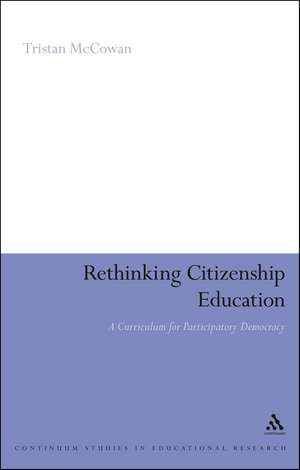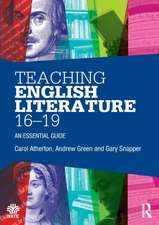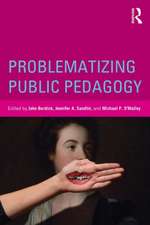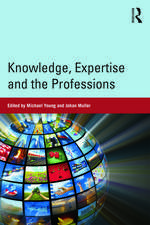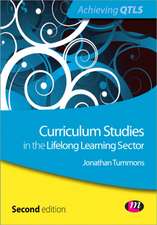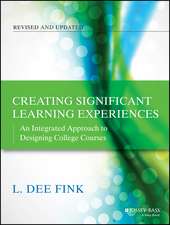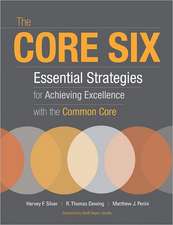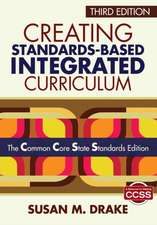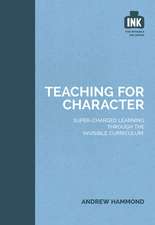Rethinking Citizenship Education: A Curriculum for Participatory Democracy: Continuum Studies in Educational Research
Autor Dr Tristan McCowan Anthony Haynesen Limba Engleză Paperback – 2 noi 2011
Rethinking Citizenship Education presents a fundamental reassessment of the field. Drawing on empirical research, the book argues that attempting to transmit preconceived notions of citizenship through schools is both unviable and undesirable. The notion of 'curricular transposition' is introduced, a framework for understanding the changes undergone in the passage between the ideals of citizenship, the curricular programmes designed to achieve them, their implementation in practice and the effects on students. The 'leaps' between these different stages make the project of forming students in a mould of predefined citizenship highly problematic.
Case studies are presented of contrasting initiatives in Brazil, a country with high levels of political marginalisation, but also significant experiences of participatory democracy. These studies indicate that effective citizenship education depends on a harmonisation or 'seamless enactment' of the stages outlined above. In contrast, provision in countries such as the UK and USA is characterised by disjunctures, showing insufficient involvement of teachers in programme design, and a lack of space for the construction of students' own political understandings.
Some more promising directions for citizenship education are proposed, therefore, ones which acknowledge the significance of pedagogical relations and school democratisation, and allow students to develop as political agents in their own right.
Case studies are presented of contrasting initiatives in Brazil, a country with high levels of political marginalisation, but also significant experiences of participatory democracy. These studies indicate that effective citizenship education depends on a harmonisation or 'seamless enactment' of the stages outlined above. In contrast, provision in countries such as the UK and USA is characterised by disjunctures, showing insufficient involvement of teachers in programme design, and a lack of space for the construction of students' own political understandings.
Some more promising directions for citizenship education are proposed, therefore, ones which acknowledge the significance of pedagogical relations and school democratisation, and allow students to develop as political agents in their own right.
| Toate formatele și edițiile | Preț | Express |
|---|---|---|
| Paperback (1) | 256.85 lei 6-8 săpt. | |
| Bloomsbury Publishing – 2 noi 2011 | 256.85 lei 6-8 săpt. | |
| Hardback (1) | 890.72 lei 6-8 săpt. | |
| Bloomsbury Publishing – 26 mar 2009 | 890.72 lei 6-8 săpt. |
Preț: 256.85 lei
Nou
Puncte Express: 385
Preț estimativ în valută:
49.15€ • 51.46$ • 40.77£
49.15€ • 51.46$ • 40.77£
Carte tipărită la comandă
Livrare economică 09-23 aprilie
Preluare comenzi: 021 569.72.76
Specificații
ISBN-13: 9781441156310
ISBN-10: 1441156313
Pagini: 232
Dimensiuni: 156 x 234 x 12 mm
Greutate: 0.33 kg
Editura: Bloomsbury Publishing
Colecția Continuum
Seria Continuum Studies in Educational Research
Locul publicării:London, United Kingdom
ISBN-10: 1441156313
Pagini: 232
Dimensiuni: 156 x 234 x 12 mm
Greutate: 0.33 kg
Editura: Bloomsbury Publishing
Colecția Continuum
Seria Continuum Studies in Educational Research
Locul publicării:London, United Kingdom
Caracteristici
A key monograph that examines the fundamental and problematic questions underlying citizenship education within the school curriculum.
Notă biografică
Tristan McCowan is Senior Lecturer in Education and International Development at IOE, UCL's Faculty of Education and Society, University College London, UK.
Cuprins
Contents
PART ONE: CURRENT TENSIONS IN CITIZENSHIP EDUCATION
1. Mapping citizenship
2. Tensions and disjunctures in citizenship education at the start of the 21st century
3. Paulo Freire v. Bernard Crick
4. Student participation: towards a prefigurative conception
PART TWO: UNDERSTANDING PROCESSES
5. A theory of curricular transposition
6. Three Brazilian experiences
7. Relating ends and means
8. Enactment at work
PART THREE: RESPONSES
9. Seamless enactment
10. The uncertain journey
References
1. Mapping citizenship
2. Tensions and disjunctures in citizenship education at the start of the 21st century
3. Paulo Freire v. Bernard Crick
4. Student participation: towards a prefigurative conception
PART TWO: UNDERSTANDING PROCESSES
5. A theory of curricular transposition
6. Three Brazilian experiences
7. Relating ends and means
8. Enactment at work
PART THREE: RESPONSES
9. Seamless enactment
10. The uncertain journey
References
Recenzii
'Tristan McCowan has compressed several decades of contentious pedagogical and political debates into this concise, elegantly written and theoretically ambitious book....A vivid and thorough discussion of rather important educational questions: What is citizenship education? What does it mean to "participate" in educational settings? And, Can we envision a different form of education? By introducing a set of new conceptual tools and presenting detailed analysis of three models of citizenship education, this book engages in broader questions of curriculum and educational practices, while offering an original and robust model to re-frame the debate about what matters most in the field of politics of education.'Gustavo E. Fischman, Arizona State University, USA
'This is a good book that is well worth reading...An interesting and very valuable book that succeeds in encouraging us to think differently about citizenship education' Education Review
'A well documented, thoughtful, readable, researched based, and balanced study on how to conduct citizenship education'
'I would highly recommend this book , as an empowering conception of the possibilities in education for democratic citizenship.'
'Tristan McCowan challenges scholars to reconsider commonly held assumptions about citizenship education. His wide-ranging and original study should be read by anyone wishing to explore relationships between pedagogic principles, democracy and social justice.' Audrey Osler, Visiting Professor of Citizenship and Human Rights Education, University of Leeds, UK
'This is a good book that is well worth reading...An interesting and very valuable book that succeeds in encouraging us to think differently about citizenship education' Education Review
'A well documented, thoughtful, readable, researched based, and balanced study on how to conduct citizenship education'
'I would highly recommend this book , as an empowering conception of the possibilities in education for democratic citizenship.'
'Tristan McCowan challenges scholars to reconsider commonly held assumptions about citizenship education. His wide-ranging and original study should be read by anyone wishing to explore relationships between pedagogic principles, democracy and social justice.' Audrey Osler, Visiting Professor of Citizenship and Human Rights Education, University of Leeds, UK
